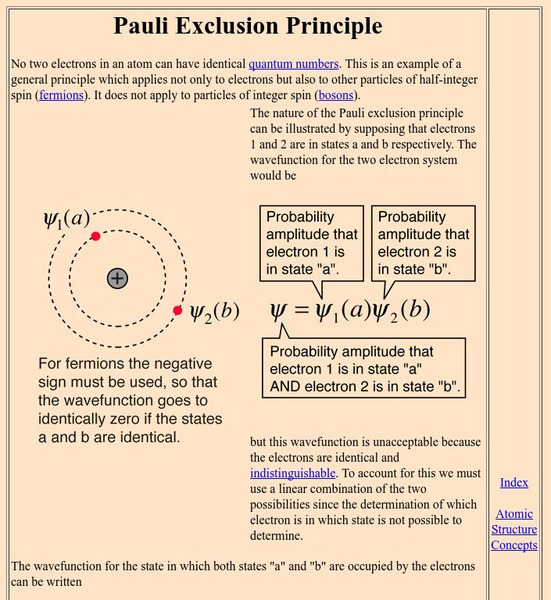National High Magnetic Field Laboratory
Magnet Academy: Low Temperature Physics
Why do physicists want to study things at temperatures so cold atomic motion almost comes to a halt? And how do they create such frigid environments, anyway? Read on for the what, how and why of low temperature physics.
Nobel Media AB
The Nobel Prize: The Quantised World
After an introduction, this site breaks down into sections discussion quantum theory, including A Quantum Theory for Energy, A Quantum Theory for Atomic Structures, Waves or Particles, Quantum Mechanics, and Interpreting the Quantum World.
Massachusetts Institute of Technology
Mit: Open Course Ware: Courses: Physics: String Theory for Undergraduates
College-level physics course focusing on the string theory. The course develops the aspects of string theory and makes it accessible to students familiar with basic electromagnetism and statistical mechanics. Course features include...
Wolfram Research
Wolfram Science World: Quantum Electrodynamics
In its description of quantum electrodynamics this definition provides the governing equations.
Simon Fraser University
Chem1 Virtual Textbook: The Quantum Atom
Acting as a subtopic of the General Chemistry Virtual Textbook's section on Atoms and the Periodic Table, this site specifically addresses the quantum atom and related topics. The related topics include the wave function and its physical...
National High Magnetic Field Laboratory
Magnet Academy: Richard Feynman
Theoretical physicist Richard Phillips Feynman greatly simplified the way in which the interactions of particles could be described through his introduction of the diagrams that now bear his name (Feynman diagrams) and was a co-recipient...
Libre Text
Libre Texts: Physics: Early Quantum Mechanics
An overview of quantum mechanics which begins with why they are important and wraps up with an accident at Bell Telephone labs in 1925. Find several theories and formulas.
University of Colorado
University of Colorado: Physics 2000: Quantum Atom
Several pages with an interesting discussion of the visible light spectrum and atomic absorption and emission line spectrum. Features excellent graphics, thorough and understandable discussion, and many interactive Java applets.
PBS
Pbs Learning Media: Einstein: How Smart Was He?
This essay from the NOVA Web site explores the impact Einstein made on physics and most everything we know about the cosmos.
Ohio State University
Betha Chemistry Tutorial
This site resource offers tutorials on the gas laws, balancing chemical equations, and quantum mechanics.
Chemistry Collective
Chem Collective: Statistical Mechanical Simulator
The Statistical Mechanics Simulator allows students to create a multi-level quantum mechanical system and explore the partition function and thermodynamic properties.
Massachusetts Institute of Technology
Mit: Open Course Ware: Courses: Physics: Classical Mechanics
College-level online course highlighting the study of classical mechanics. This course focuses on Newtonian mechanics, fluid mechanics, and kinetic gas theory. Course features include a 35 video lecture series by Walter Lewin. Also link...
Lawrence Berkeley National Laboratory
Berkeley Lab: The Particle Adventure
Visit this site for an interactive tour of the atom and all aspects of particle physics. View the animations available with almost every description on this site. A great place for the fundamentals of particles and forces including a...
University of Colorado
University of Colorado: Physics 2000: Elements as Atoms: The Pauli Exclusion Principle
The Pauli Exclusion Principle shows how electrons fill atomic orbitals. Includes biographical information on Wolfgang Pauli.
University of Colorado
University of Colorado: Physics 2000: Elements as Atoms: Electron Clouds and Energy Levels
An explanation of the different types of atomic orbitals, how they are filled according to the Pauli Exclusion Principle, and how many electrons can fit in each electron shell.
American Association of Physics Teachers
Com Padre Digital Library: Open Source Physics: Rectangular Well Superposition
A simulation that displays the 2D evolution of the position-space of a wave in an infinite 2D rectangular well.
CK-12 Foundation
Ck 12: Weak Nuclear Force and the Standard Model
[Free Registration/Login may be required to access all resource tools.] Describes the development of the model of particle physics called the Standard Model.
Michael Blaber, PhD
Florida State University: The Bohr Model of the Atom
A well designed clear tutorial explaining the energies involved in the Bohr model of the atom. Illustrations add to the clearly presented equations.
Nobel Media AB
The Nobel Prize: Werner Karl Heisenberg Biographical
This website provides information on the life and scientific contributions of Werner Heisenburg, a recipient of the Nobel Prize in Physics for his "creation of quantum mechanics." Read the Prize Presentation Speech in which Professor H....
University of Colorado
University of Colorado: Physics 2000: Elements as Atoms: Spin
A basic explanation of spin and how it relates to electrons and quantum numbers.
Other
The International Linear Collider: Gateway to the Quantum Universe [Pdf]
This fascinating report describes the planned International Linear Collider, a particle accelerator, and explains how it will work and the scientific rationale behind it. Much of the material is presented in relatively easy to understand...
Georgia State University
Georgia State University: Hyper Physics: Pauli Exclusion Principle
An explanation of the Pauli Exclusion Principle in mathematical terms.
University of Colorado
University of Colorado: Physics 2000: Schrodinger's Atom
A simple dialogue to explain quantum theory and the Schrodinger equation. Includes several java applets.
University of Colorado
University of Colorado: Physics 2000: The Pauli Exclusion Principle
This site from the University of Colorado at Boulder has great information on the Pauli Exclusion Principle. Pictures are provided along with links to additional information. The information provided is not in-depth and it is...

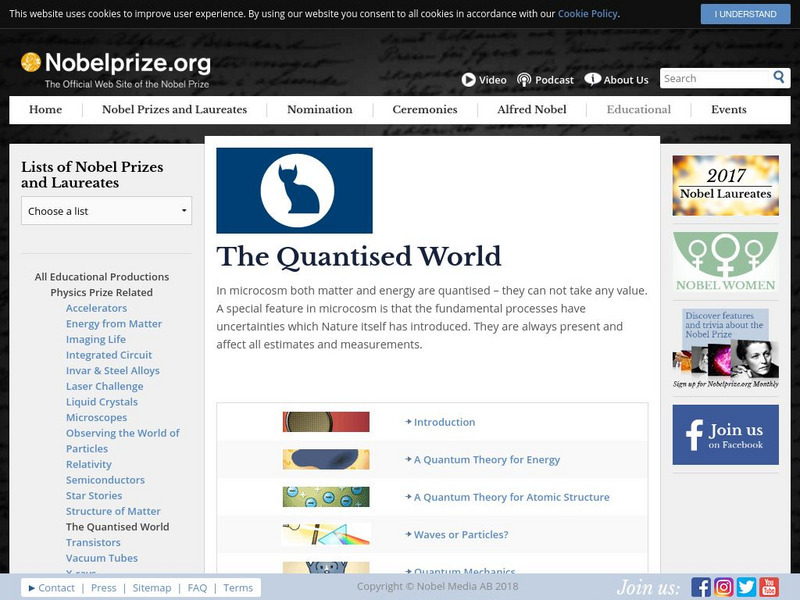








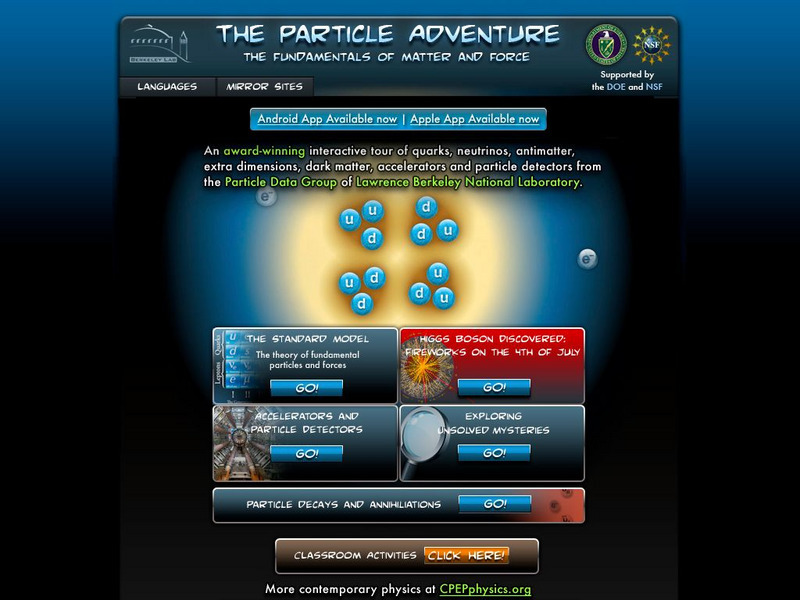


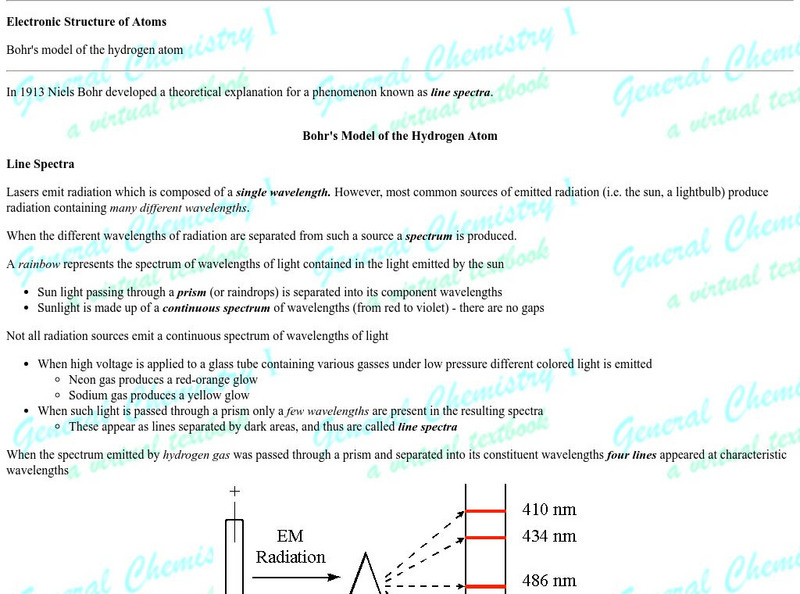
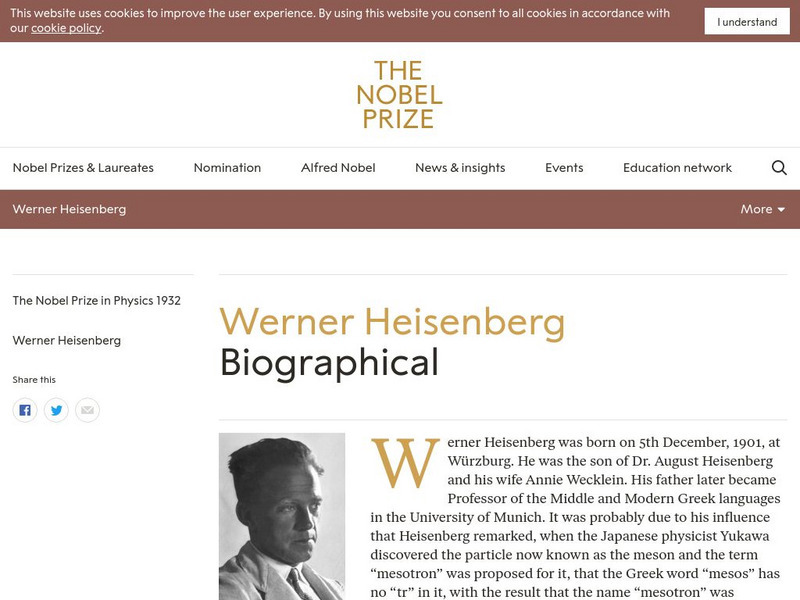
![The International Linear Collider: Gateway to the Quantum Universe [Pdf] Handout The International Linear Collider: Gateway to the Quantum Universe [Pdf] Handout](http://lessonplanet.com/content/resources/thumbnails/410018/large/bwluav9tywdpy2symdiwmduymc0ymzuwmy0xeg4wzg1tlmpwzw.jpg?1589984780)
